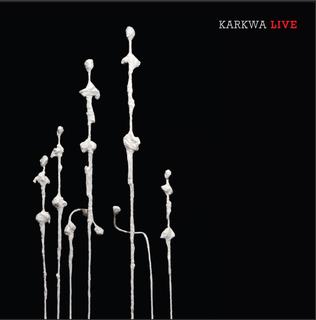 The typically Anglophone-dominated Polaris Music Prize could do with some French infusion by crowning this year’s winner to the Montreal based band, Karkwa.
The typically Anglophone-dominated Polaris Music Prize could do with some French infusion by crowning this year’s winner to the Montreal based band, Karkwa.After playing together for 12 years, the five gentlemen of Karkwa, Louis-Jean Cormier, François Lafontaine, Martin Lamontagne , Julien Sagot and Stéphane Bergeron give proof that despite their lyrics being entirely in French, music is a universal language.
Their outstanding fourth album, Les Chemins de Verre (The Glass Paths) shows the evolvement of their sound, mastering a folk and rock sound with complimentary passionate, gritty, and emotional vocals by lead singer Louis-Jean Cormier.
Karkwa’s previous album Le Volume du Vent (The Volume of the Wind), released in 2008, gained some recognition in English Canada because of musical guests Patrick Watson and Elizabeth Powell, of Land Of Talk. Le Volume du Vent also produced one of their biggest hit to date, Oublie Pas (Forget) but has still left Karkwa as the underdog to win.
When asked about their chances of winning, Cormier said in a recent interview with Chartattack.com, “We sing in French. Like I was saying to someone before, we are the black lamb of the list. Le mouton noir.” Thankfully, the Polaris Music Prize is not about popularity but rather artistic credibility.
Despite their chances of winning being low, like fellow French Canadian band Malajube, nominated for both the 2006 and 2009 prize, their recognition, especially in English Canada, should grow substantially becomes of the nomination.
Karkwa, the phonetic pronunciation for the French word carquois, quiver of arrows, recorded part of Les Chemins de Verre, without any preproduction, in a nineteenth century studio in Paris. This is the same studio where fellow Canadians and Polaris Prize nominees Feist and Patrick Watson recorded The ReminderWooden Arms and respectively. This left the band with the spontaneity needed to capture the emotional moments that Cormier sings about.
The band is often compared to Fleet Foxes, Radiohead, Sufjan Stevens, and experimental Icelandic band Sigur Rós.
When the lyrics are understood, revealed are tender lyrics such as in the folkier and standout song Marie Tu Pleures (Mary You Cry), “Mary, you are crying for nothing. Mary return your heart.”
The album opener, Le Pyromane (The Arsonist) starts fittingly with the sounds of a crackling fire, continuing into album highlights, Marie Tu Pleures, Le Bon Sens (Common Sense), and La Piqûre (The Puncture). The last song, Le Vrai Bonheur (True Happiness), provides a brilliantly instrumental filled album closer, leaving you just that, happy.
With this year’s Polaris Music Prize going to Karkwa, it wouldn’t just mean a win for a very deserving band but a win for all of the French Canadian music community.







Aucun commentaire:
Enregistrer un commentaire